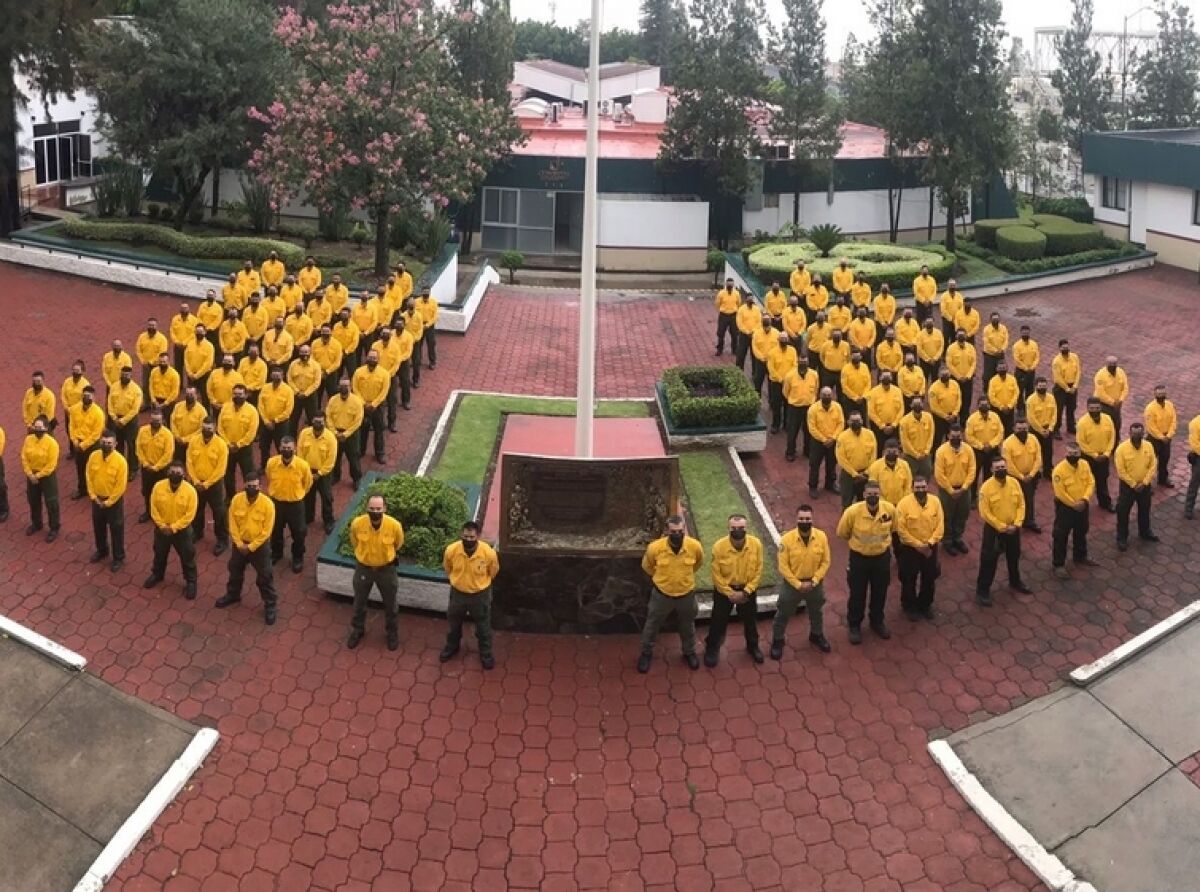For the fourth time, the Government of Mexico, through the National Forestry Commission (CONAFOR,) sent combat personnel to help suppress forest fires in Canada.
This occurs within the framework of the Exchange of Resources for Forest Fire Management between both countries.
The Mexican contingent, which this time will work in the province of Ontario, is made up of five brigades, five brigade chiefs, 20 crew chiefs, two representatives of the field unit, a COVID coordinator, and the rest as line combatant personnel, for a total of 101 people.
These personnel come from 22 entities in the country: Aguascalientes, Campeche, Chiapas, Mexico City, Coahuila, Colima, Durango, Guanajuato, Guerrero, Hidalgo, Jalisco, State of Mexico, Michoacán, Morelos, Nayarit, Puebla, San Luis Potosí, Tamaulipas , Tlaxcala, Veracruz and Yucatán.
All of them comply with the requirements and standards requested by Canada since they completed their registration on the online platform and have satisfactorily accredited the phase of physical fitness evaluations and their knowledge of forest fires. The selection of the 101 combatants, only three of which were women, took place from July 15 to 17 in the central offices of CONAFOR, Zapopan, where they finished some other activities such as luggage weigh-in, medical check-up, COVID-19 test, personal protective equipment review, among others.
This contingent is sent by the Mexican government at the request of Canada, and responds to the statistics of the Canadian Interagency Center for Forest Fires, which classified the current situation in that country as critical, declaring a Level 5 Preparedness.
The classification of preparedness levels is established according to climatic conditions, amount of vegetation that can burn (fuels), fire behavior forecast, and the availability of national resources for fire suppression, with number five being the highest level.

The Mexican contingent arrived on July 17 at Toronto Pearson International Airport and where it was received by a delegation led from the Mexican side by the Mexican Ambassador to Canada, Juan José Gómez Camacho and the Toronto Consul General, Porfirio Thierry Muñoz Ledo
As part of this bilateral cooperation project, the Ontario Ministry of Agriculture, Food, and Rural Affairs confirmed the availability to inoculate Mexican contingent members against COVID-19 upon arrival, making use of the mobile clinic and logistics capacity used to vaccinate Temporary Agricultural Worker Program participants.
This exchange of personnel and support strengthens the Mexican government's commitment to the Canadian people, and highlights the effectiveness of the bilateral and regional cooperation mechanisms that exist with the Canadian government.

